18 Ways to Achieve a More Energy-Efficient Hvac System for Your Home in 2024

An HVAC system is an essential part of any home or building. The HVAC system is made to help control the temperature conditions within a building to create a comfortable environment through heating and cooling the space.
Energy-efficient HVAC units require less energy to work, which means you’ll spend less money on energy bills in the short and long run.
Learn how Aeroseal can help you achieve significant energy savings when it comes to your home's heating and air conditioning systems.
What Makes an HVAC System Energy Efficient?
When it comes to devices and machines, energy efficiency is the first thing people look for. It is no different for HVAC systems, which can take up a significant portion of a home's energy costs.
Different factors will make an HVAC system energy efficient. The type of system you have can have a major impact on energy efficiency.
Because of this, even small changes to an existing system can help make it more energy efficient.
Energy-Efficient HVAC Rating Systems
When it comes to finding the most energy efficient HVAC system, it helps to have an understanding of the science behind them.
Here are some of the different scientific ratings most energy efficient HVAC systems will be rated with:
Seasonal Energy Efficiency Ratio (SEER)
SEER is the measured ratio of cooling output, which is measured in British Thermal Units (BTU) and then divided by usage, measured in kilowatt hours.
For the SEER rating, the higher the number, the more energy efficient HVAC ducting you have. The SEER HVAC rating uses seasonal cooling conditions rather than lab-created conditions.
Energy Efficiency Ratio (EER)
Another rating most energy efficient residential HVAC systems will have is an EER rating. The EER rating does not use seasonal averages to get its ratios.
Instead, it uses strict laboratory conditions for its testing. Like with the SEER rating, the higher the EER number, the more energy efficient the HVAC system is.
Heating Seasonal Performance Factor (HSPF)
The HSPF rating is the ratio for how efficient the HVAC’s heat pump is, which cycles in both directions to produce hot and cold air.
The HSPF rating measures exactly how much total space heating is necessary, using the BTU measurement divided by the total amount of electricity used by the pump in kilowatt-hours. The higher the HSPF ratio, the more efficient the heat pump is.
18 Tips to Make Your HVAC Unit More Energy Efficient
So, do I need to invest in a whole new system to increase energy efficiency?
Not at all.
Just read these 18 tips for some energy saving adjustments that can make a huge difference in your utility bills and reduce your energy consumption.
1. Retrofit An Old Heating and Cooling System
Updating your HVAC system is a great option for large, energy-intensive systems that have been well-maintained through their lifetime.
You can replace the system’s compressor, add condenser fan controls, and add air side economizers that help take advantage of the cool air outside.
2. Invest in a New Energy Efficient HVAC System for Your Home
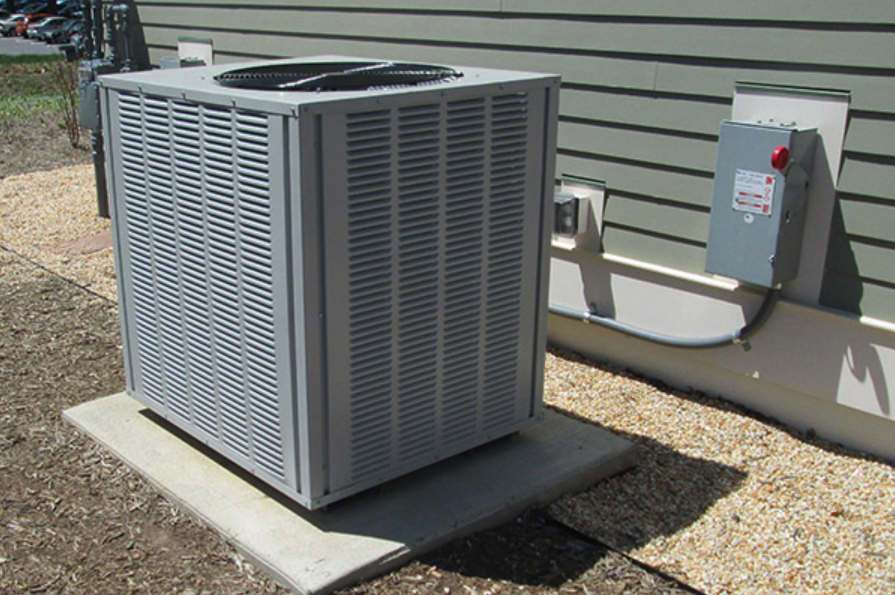
Alternatively, if you plan on staying in the same home for a long time, you may want to consider purchasing a new HVAC system with more efficient ducting. This is especially helpful if you have an old system.
Check for high efficiency units with high SEER and Energy Star ratings that adhere to strict energy efficiency guidelines.
3. Increase the Insulation of Your Space
To have the most energy efficient residential HVAC system possible, you also want to ensure your home itself is well insulated.
Insulating your home and the unit’s ducting properly will prevent air from escaping. So, your unit will not have to work as hard to heat and cool your home overall.
4. Use Aeroseal Duct Sealing to Avoid Duct Leakage
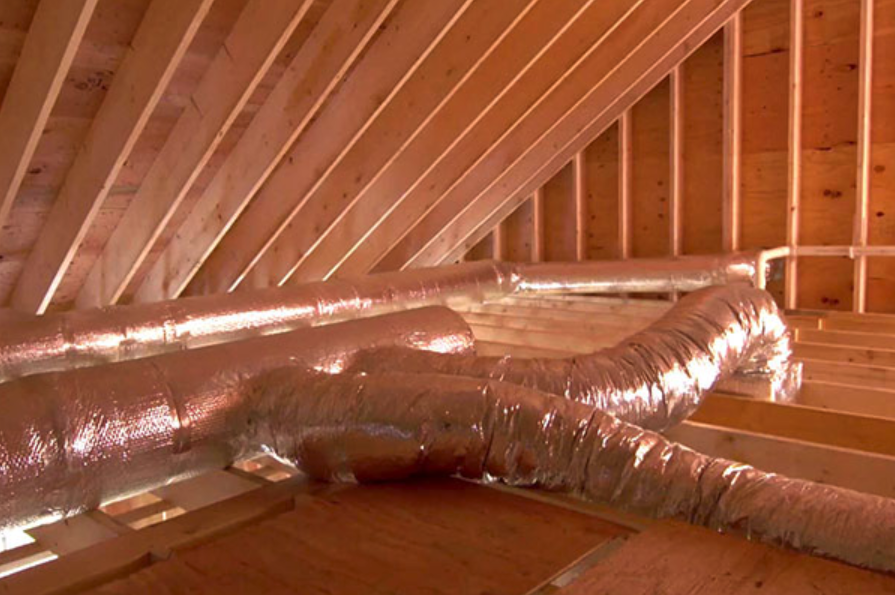
When you hook up an energy efficient HVAC unit to a leaky duct system, it completely defeats the purpose by allowing the air to escape before it reaches the inside of your home.
This is a costly issue that, unfortunately, is easy for HVAC technicians to overlook. And because of that, it can cost you a lot of money.
By using a product like Aeroseal, any cracks and holes can easily be filled, preventing any more air leakage.
5. Install Programmable Controls and Thermostats
Programmable thermostats and controls also help to make the most of energy efficient HVAC units.
These systems allow temperatures to be automated, so they can change depending on the time of day. This helps take some of the heavy workload off of your HVAC system.
A simple change of temperature during the day when nobody is home can drastically decrease the amount you spend on your utility bills. So, save some extra dough by installing a programmable or smart thermostat.
6. Preserve the System Airflow
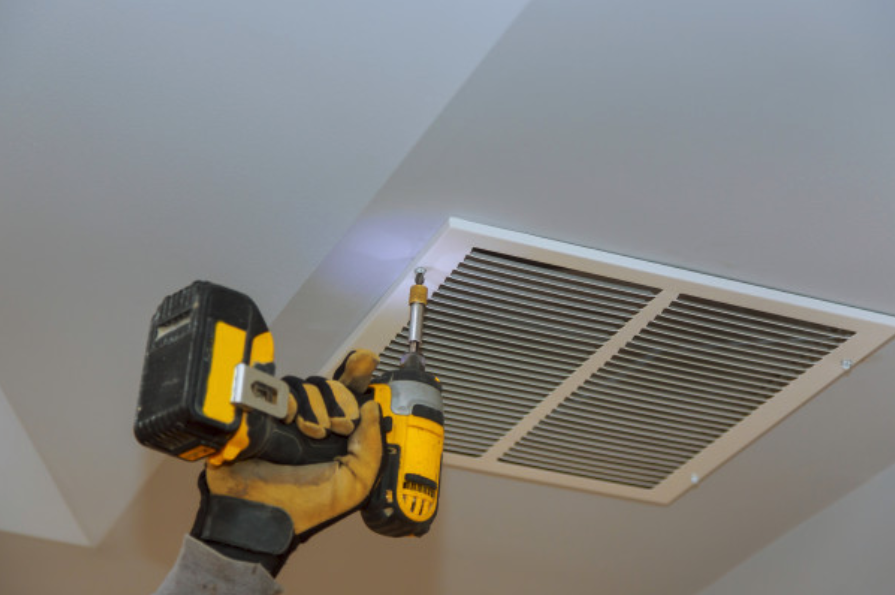
Keeping your HVAC unit free from dust and debris is essential in maintaining an energy efficient unit. Dust, dirt, and debris can all clog a system and force it to work harder to push out hot and cold air.
Also, you want to ensure that your furniture and curtains are not blocking any of the air vents or ducts, which could prevent air from flowing smoothly and efficiently.
7. Make Use of Curtains and Blinds
During summer months, keeping curtains closed during the day will help block out some of the summer heat, allowing your home to maintain a cooler temperature.
Alternatively, opening the curtains during winter will allow even the smallest amount of sunlight to come through and naturally warm your home, so your HVAC system works less.
8. Perform Regular Maintenance to Save Energy
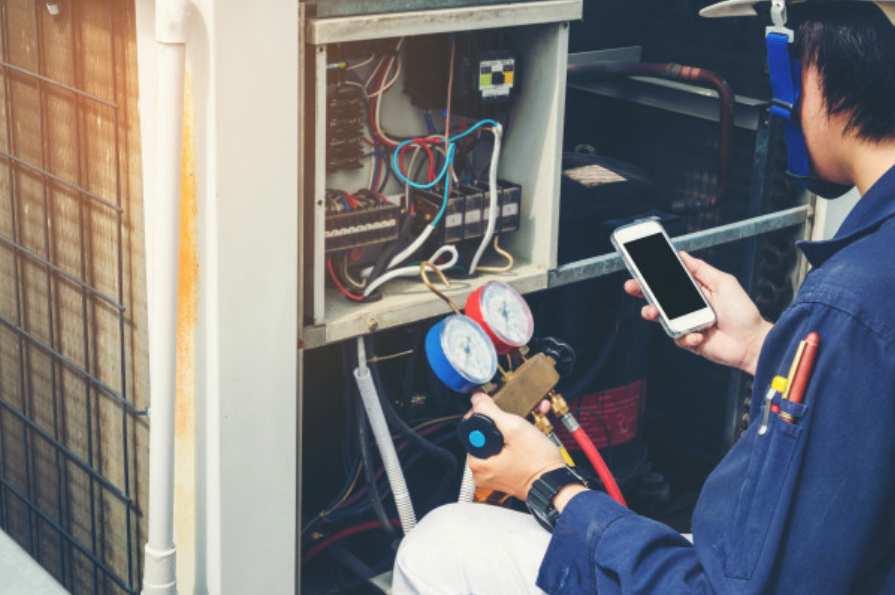
It may seem like common sense, but people surprisingly overlook the importance of performing regular maintenance on their unit.
At both the start and end of every season, you want to get your system inspected to make sure everything is working to its fullest potential.
By having regular maintenance checks, you can avoid being caught by a surprise system failure and costly repairs.
9. Watch the Thermostat
If you set your thermostat closer to the outside temperature, then the HVAC system will not have to work nearly as hard to heat or cool your home.
This is another reason why installing a programmable thermostat is an outstanding, money-saving idea. That way, it will change the temperature automatically, without you having to constantly watch it.
10. Change Air Filters Regularly
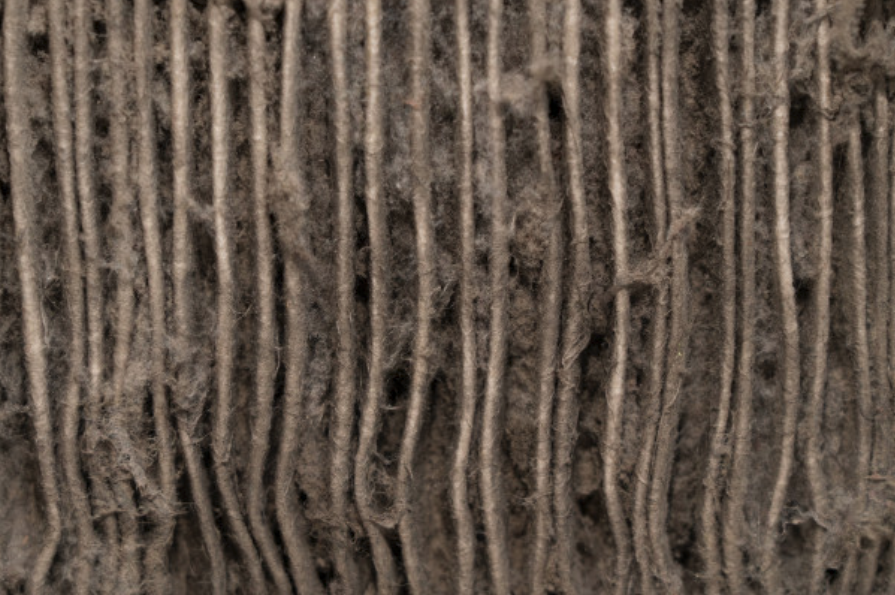
As the HVAC system is used, the air filter inside of it gets clogged with dirt, dust, and other types of debris. The dirtier the filter gets, the harder the system is forced to work to do its job, making it use more energy and costing you more on your utility bill.
By changing the filter regularly, you can ensure your HVAC system always has a clean air filter, so it can function at its best.
11. Watch When You Run the Dryer and Oven
When a dryer is used, it draws warm air into the home while an oven simply creates additional heat.
So, when these appliances are used during the hottest point of the day in summer, they increase the home’s temperatures. This forces your HVAC system to work harder in cooling your home, which runs up your utility bills.
12. Take Advantage of Fans to Cool Your Home
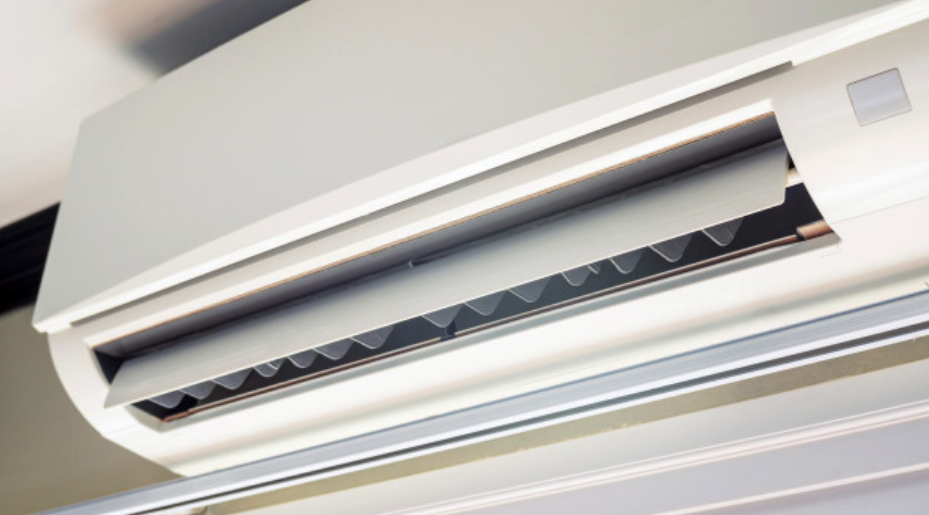
Fans are instrumental in improving your HVAC energy efficiency.
No matter if your system is set to cooling or heating, fans will help better circulate the air throughout your house. That way, all areas of your home are getting evenly distributed hot and cold air, and the system doesn’t have to use as much energy.
13. Clean Your Drain Line
Keeping the drain line clean will help with creating the most energy efficient home HVAC system setup possible. To clean this line, you can flush a cup of chlorine bleach through the drain, followed by a gallon of water to help rinse it through.
Doing this will help keep your drain clean all summer and will help make sure your basement doesn’t flood from a blocked drain.
14. Trim Plants and Clean Gutters
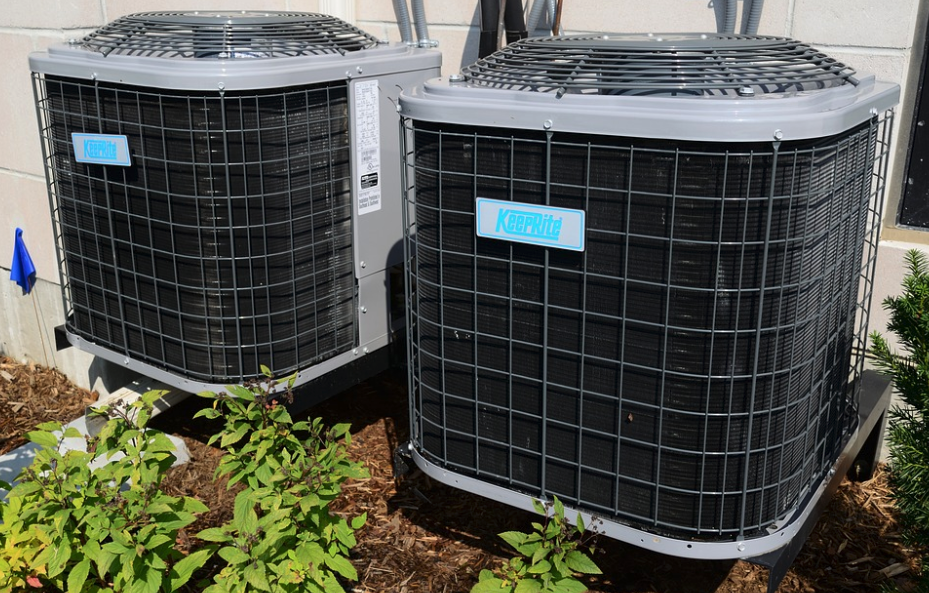
Another thing you can do to create better conditions for energy efficiency is to trim your plants and clean out your gutter.
These things hold moisture, and if moisture gets onto or into the HVAC system, it can reduce its functionality. Keeping it free from fallen foliage and moisture is vital.
15. Place Outdoor Unit in a Shaded Area
If an HVAC unit is placed in an area with excessive sunlight, it can cause it to overheat and use more energy to cool your home.
Placing it against your home in an area that doesn’t get excessive amounts of sunlight will allow it to maintain a consistent temperature, so it doesn’t have to use more energy to cool your home.
16. Have the Right HVAC System Size
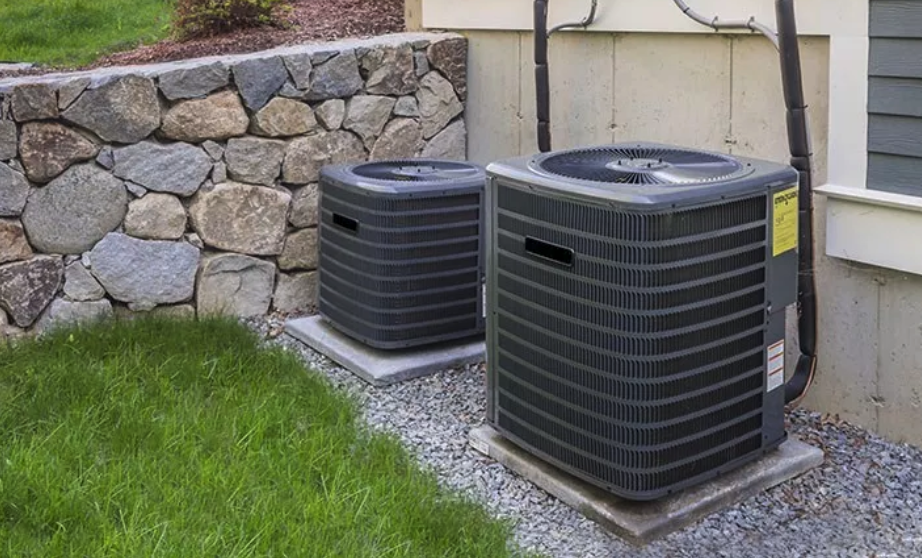
Having a system that’s too small for your home can force the system to work harder to heat and cool your space. Alternatively, a system that’s too big may be overkill and put out too much energy. Talk to a professional to figure out what size HVAC unit is best for your home.
17. Get Proper Duct Sizing
The ductwork of your HVAC system runs throughout your home, helping to distribute heated and conditioned air throughout. Because of that, it is essential to ensure you choose your ductwork in the correct size.
If ducting is too small, it will reduce the overall airflow and minimize your HVAC’s performance. Alternatively, if the ducting is too large, the air may get lost and your HVAC would have to work even harder to heat and cool the entire house.
18. Consider Duct Design
When you’re trying to reach your entire house with your HVAC system, the design of your ductwork is critical. Beyond the sizing, the shape, number of bends, and overall layout of the ducting affect how the air flows through the system. With longer distances to travel or more bends in the design, the HVAC system will have to work harder to move air throughout the home, and some air may end up lost in its path to the different rooms.
Achieve Greater HVAC Efficiency with Aeroseal
Whether you’re trying to lower your utility bills or be more green when it comes to energy usage, these 18 tips can help you use your HVAC’s energy more efficiently. Sealing duct leaks with Aeroseal is one simple way to keep your HVAC running efficiently and effectively.













